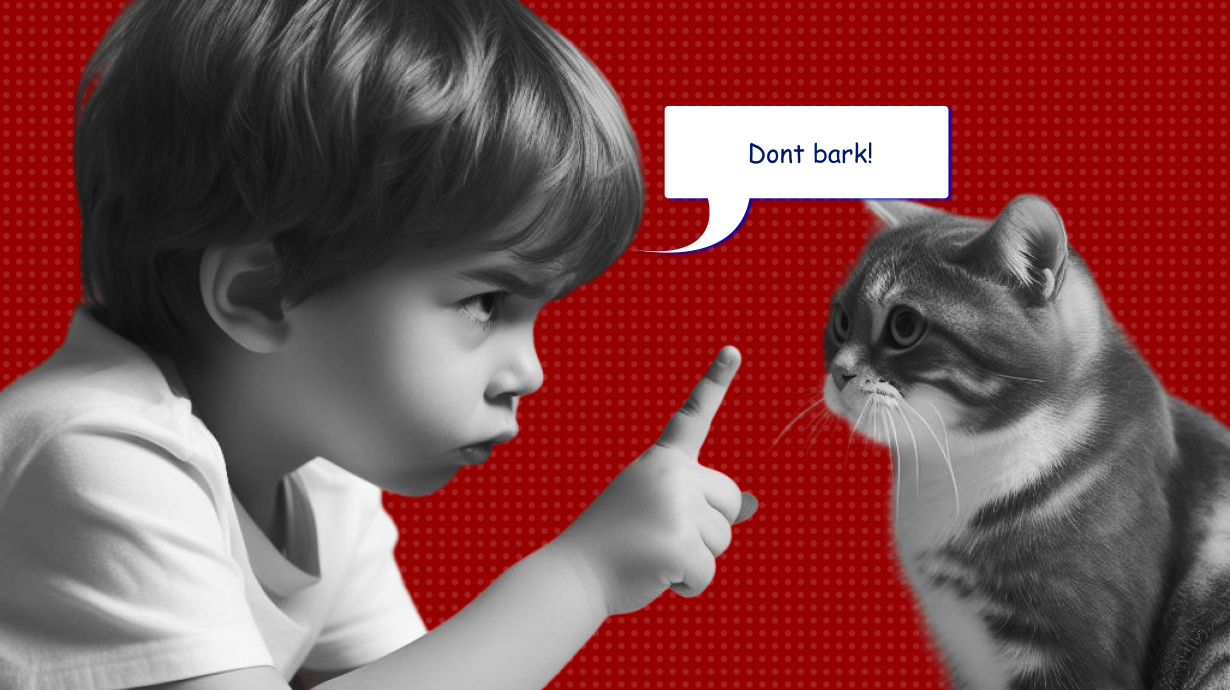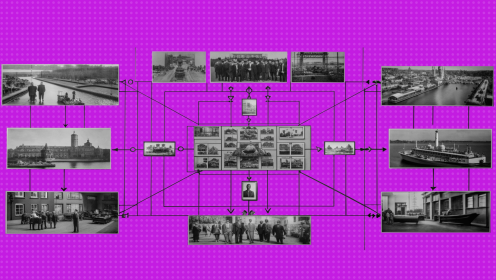Conflict is a non-peaceful way to resolve contradictions or blow off steam. It is often accompanied by bloodshed and physical assault, a surge of negative emotions, a bad mood, and a decrease in productivity. Conflict situations arise either because of differences in opinions, or because of accumulated negativity.
In ordinary life, confrontations can be avoided by simply "filtering" your social circle. At work, such a thing will not work for two reasons:
- work is always stressful;
- people with whom you disagree are unlikely to be avoided.
I do not believe that at least one HR specialist is so bothered with the selection of personnel that everyone is perfect for each other. And to combine incompatible people in a closed (both literally and figuratively) space is always not the best idea.
To be fair, not all work conflicts have bad consequences. Sometimes, this is the path to development.
What causes conflicts at work
So, people accumulate negativity due to external or internal factors, differences in views cause contradictions - and all this, in turn, generates conflicts. So, in order to understand the causes of conflict situations, you need to understand where colleagues' views may differ, and what can fuel negative emotions.
Conflicts at work can occur for several reasons, but all can be conditionally combined into two groups:
- poor top management,
- incompatibility of employees.
Guess which group has the most reasons?
No, seriously, God knows, I didn't want to reduce everything to "it's all the manager's fault", but if you look at it, somehow it turns out that way.
Poor top management
- The work is poorly organized. How to get to the office outside the city without a car? Is there any stationery in the office? The salary is given out at the same time? All communicate in one messenger and manage tasks in one task manager? Internal processes in the company should be clear to every employee. If there is no transparency, people will not be able to work together and will start to conflict.
- There is no clarity with the job responsibilities. Some time ago, I worked for a company where no one really knew what his responsibilities were other than working on a project. If you needed access to the admin panel of the site, you had to ask the office manager who you need to contact, so as not to get the answer "this is not in my competence". I guess you don't have to explain why it sucks, do you? The company should clearly state who does what and what they are responsible for. Without this, there will only be chaos and problems.
- There is a struggle for resources. Sometimes employees have conflicts of interest. For example, when two managers are assigned to one designer with two urgent tasks. The lack of human, financial and other resources is also a problem of top management.
- Important information is missing. Sometimes the authorities hide some information from the employees (for the purpose of not always clear). The information vacuum can not last long - it is quickly filled with rumors, gossip and speculation, generating conflicts.
- The employees are constantly under pressure. Blazing deadlines; work on weekends; the threat of dismissal, etc. - this and much more causes employees to experience stress, shatters the emotional state and provokes scandals and showdowns within the team.
Employees are incompatible
- Employees have different views on certain issues. Naturally, the task of an employee is to work, perform their tasks, and achieve their goals. But people are social beings, and they can't help but communicate with each other. In non-working conversations, topics will certainly pop up that people will not agree on. Contradictions in the views you can switch to the tension, and then into a full-fledged conflict.
- Employees have different habits. Some people like to work with an open window, others are constantly uncomfortable. Some people like to work while listening to music, others are outraged - is it really impossible to do it with headphones? This reason is closely related to the previous one, but, at the same time, stands apart.
All of the above are triggers that provoke conflicts at work. But do not forget that an important role is played by the state of a person, the presence of personal problems, fatigue, etc. You can make a fierce scandal because of a dirty cup that someone left in the sink - all because your child was teething at night, and you could not sleep.
How to prevent conflict in the workplace
Both the manager and the employees should be able to prevent conflicts.
The task of the manager is to avoid the top-management mistakes listed above, and to maintain a favorable atmosphere in the company:
- create a positive culture of communication and clearly define the rules that everyone should follow;
- respect employees and give feedback only on working moments and do not touch personal qualities in any way;
- encourage the activity of employees - they should know that their opinion is important for the company.
The task of the employee, as the most likely participant in the conflict — is to immediately talk about problems. First, think carefully about your theses and choose your arguments. Then, in a friendly way, explain the essence, but do not poke, criticize or blame. Then listen to the colleague and try your best to mentally stand in his place. Only in this way will it be possible to come to an understanding and find a way out of the situation.
But there is a "but": depending on the tendency to conflict of each of the participants, you need to approach the conversation a little differently.
- All participants try to avoid conflicts. In this case, one of you will have to take the initiative, because silencing problems is not an option. Try to gently bring a colleague to frankness, and if the conversation does not go smoothly, do not back down.
- All participants tend to go to the conflict. If you are not sociopaths who just want to yell at each other, most likely, your tendency to conflict is a desire to solve problems. You will need to prepare very well for the conversation, because each of you will have a lot of arguments. If one of you loses patience or the situation gets heated, be sure to offer to take a break, change the situation and cool down a little.
- You tend to be conflicted, and your colleague tries to avoid them. In order not to scare off a colleague, be more tolerant, do not push and do not rush him. Ask them to be more active in the conversation and calmly share their opinions.
- You try to avoid conflicts, and a colleague likes to provoke them. First, set the rules of the conversation: let the interlocutor be more tolerant and watch his speech, otherwise the conversation will not be productive. Secondly, treat the other person with respect and speak directly about what is bothering you.
How to behave during a conflict
Sometimes no amount of advice doesn't work, and conflict is inevitable. If you started a conversation with a colleague to prevent a conflict, but the situation came close to the boiling point, the best tactic is to defuse the situation and reduce the intensity of passions. To do this:
- Speak more quietly and slowly to keep your emotions in check and not to say nasty things to your opponent.
- Use the rule of three "Yes". Tell your colleague that you respect his professionalism and experience, and then agree with his three theses that seem adequate to you.
- Turn the conversation into a joke. Humor is a great way to lighten the atmosphere.
- Try to move the conversation. Tell him there's something urgent right now, and we'd better move the conversation to tomorrow. During this time, you will have time to cool down and analyze each other's arguments and come up with counterarguments.
If a conflict does occur, wait for a while, and then try to soften the differences and be the first to make our meeting. In the end, you both need to admit your mistakes so that you can calmly discuss what happened and make peace.
How to help colleagues resolve a conflict
If you, like me, are a pacifist and do not like when colleagues argue, you will need a step-by-step plan that will help you resolve other people's conflicts.
Important
You are the arbiter who controls the emotions of the participants in the conflict. Your task is to resolve the conflict. To do this, you will need to understand the reason. And the best way to do this is to communicate with the participants.
- 1. Listen to the participants of the conflict. You need to look at the problem from all sides. Let the participants speak out, let off steam at the same time. Don't take sides - you need to stay as objective as possible.
- 2. Decide on the ideal outcome. Let the participants tell us how they see the result of the conflict. So you will understand what each of them wants.
- 3. Describe how things are going. Briefly describe the essence of the conflict and the goals of its participants. Being inside the conflict, people can not soberly assess all this.
- 4. Find a solution. Choose a solution to the conflict that will suit all its participants. Note that the conflict may not be resolved without mutual concessions.
- 5. Fix the reconciliation. Once again, focus on the solution found. The parties to the conflict must understand that you have listened to their opinions and taken their interests into account.
Conflicts at work are controversial things.
On the one hand, they have a bad impact on the productivity of individual employees and the entire team. In conflict teams, there is a large turnover, so the company has to spend a lot of time and money to constantly train new personnel.
On the other hand, some conflicts develop the company. For example, when in the course of a heated argument, a new, more optimal solution to the problem is suddenly born.
But, whatever the conflict situations, you need to learn how to prevent them in time, behave correctly and never give in to provocations.
In one of the following articles, I will talk about a private, but very common type of conflict recently - conflicts on remote work.


















